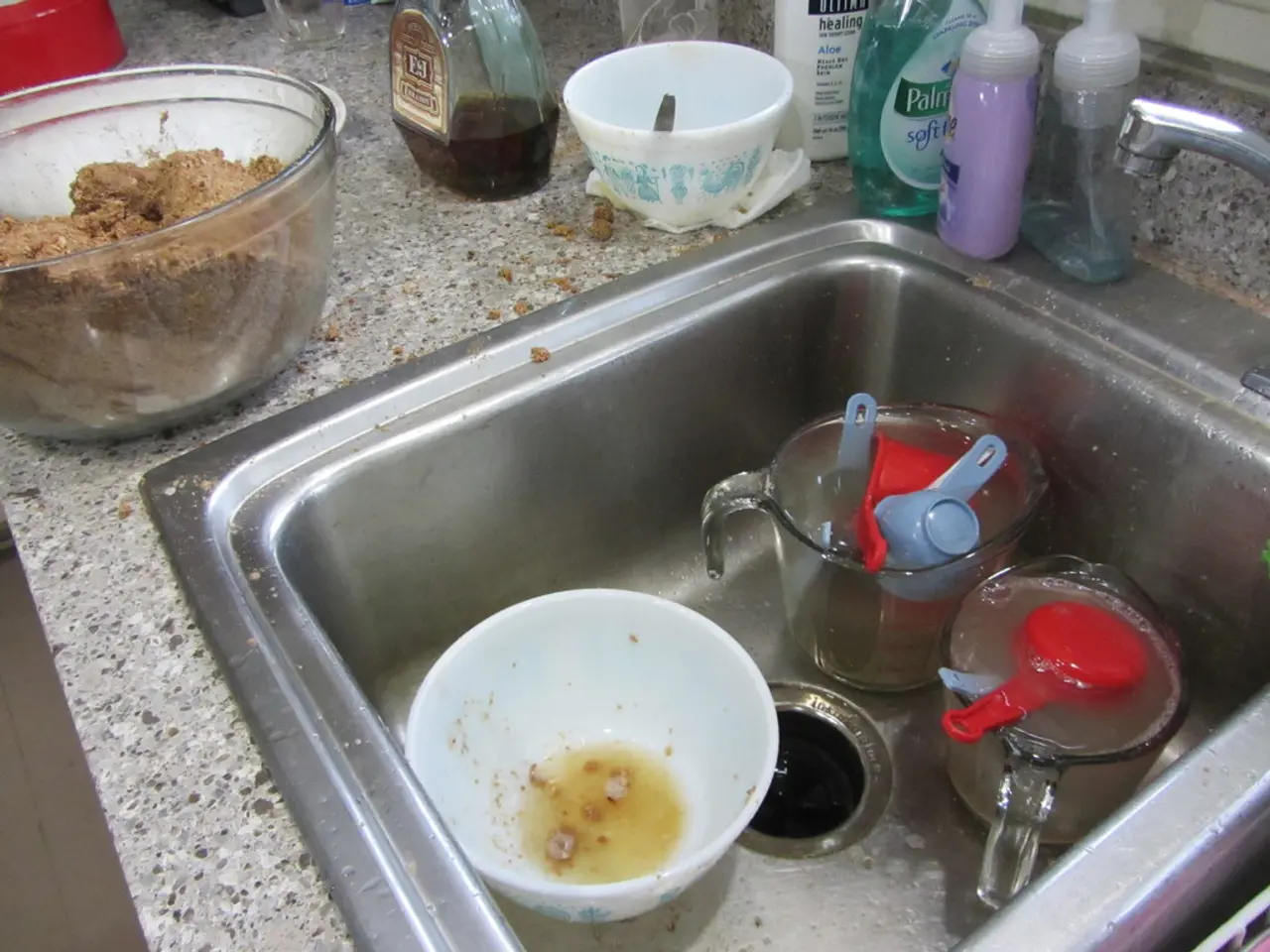"Using Superacids to Counteract Persistent Pollutants"
In a groundbreaking development, researchers from TU Berlin have synthesised a new class of super-Lewis acids, which could potentially render PFAS contamination harmless. These powerful compounds, made of silicon and a halogen atom, such as fluorine, are among the strongest Lewis acids ever synthesised.
The combination of the electron-hungry silicon atom and the strongly electron-withdrawing fluorine is crucial for their effectiveness. The super-Lewis acids have an insatiable hunger for electron pairs, making them capable of breaking the strong electron pair bond between the fluorine and carbon atoms in PFAS.
The carbon-fluorine bonds in PFAS are very difficult to break. These persistent chemicals, frequently discovered in Germany, are resistant to degradation and are suspected of causing cancer, infertility, and weakening the immune system. They are also persistent in the environment and cannot be readily degraded by water, light, or bacteria.
The super-Lewis acids were first produced by applying the "protolysis" process, a method that transfers proven processes from carbon to silicon. This breakthrough was achieved by Martin Oestreich and Professor Martin Kaupp from TU Berlin in 2021. The researchers used quantum mechanical calculations to predict the acid strength of the synthesised molecules solely from their structure.
The experiments for the production of super-Lewis acids were complex and required work to be done in a glovebox under an inert gas atmosphere. The results of the synthesis were published in the journal Nature Chemistry.
The properties of the super-Lewis acids were further investigated using nuclear magnetic resonance (NMR) spectroscopy. Tiny amounts of the new super-Lewis acids could potentially neutralise PFAS contamination, as they would act as a significant advantage over needing large amounts of an "antidote".
PFAS contamination is a significant issue, and the potential of these super-Lewis acids to break even very stable chemical bonds, such as those in PFAS, offers a promising solution. The collaboration between Martin Oestreich and Professor Martin Kaupp from TU Berlin has opened up new possibilities for the degradation of these harmful chemicals.
Read also:
- Peptide YY (PYY): Exploring its Role in Appetite Suppression, Intestinal Health, and Cognitive Links
- Toddler Health: Rotavirus Signs, Origins, and Potential Complications
- Digestive issues and heart discomfort: Root causes and associated health conditions
- House Infernos: Deadly Hazards Surpassing the Flames








